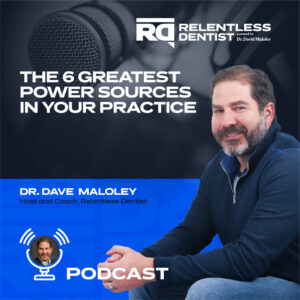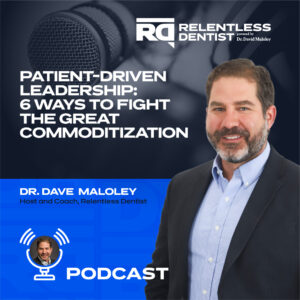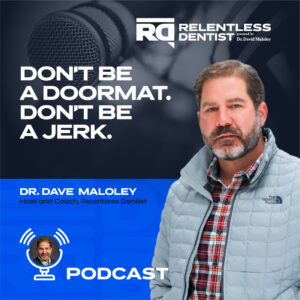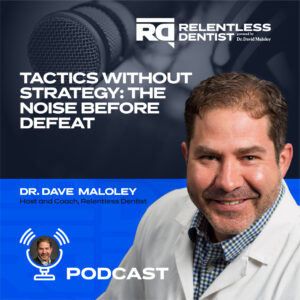by [email protected] | Dec 22, 2021 | Prescriptions for your Practice
Podcast: Play in new window | Download
 “Our deepest fear is that we are powerful beyond measure. It is our light, not our darkness, that most frighten us.” — Marianne Williamson
“Our deepest fear is that we are powerful beyond measure. It is our light, not our darkness, that most frighten us.” — Marianne Williamson
Have you ever experienced something that you thought was bad but turned out to be for your own good? Or have you ever stepped in and made a bad situation better? Either way, you can feel that great power is at play in every situation.
You can be powerful and use that power as leverage to multiply your gains in your practice. As the famous line goes — “with great power comes great responsibility.” Just make sure that you use your power in influencing others to discover their potential.
In this episode, I will discuss how to enjoy more cash flow and the six greatest sources of power in your practice. So if you want to embrace the real leverage points in your business, acknowledge the untapped potential in your practice, and turn more of your ownership and obstacles into opportunities so that you can really take charge of that income, then stay tuned.
Tune in and find solutions to common practice issues at Prescriptions for Your Practice.
Key Quotes:
- “When you’re constantly seeing power put in a negative context, it naturally becomes something that many of us disowned because we start to see it as power is bad.”
- “Most of our educational pathways teach us to blend in — not to be creative, not to be powerful, not to color outside the lines.”
- “Power is something that we need to embrace in practice because it’s just making sure that we’re more efficient and more effective in delivering the goods, the services, the experiences, that we want for our patients.”
- “We’re in a high transaction environment, but if you’re willing to play the long game and intentionally build a reputation, this can be a huge source of power because few are willing to pour into this.”
- “Clarity can bring certainty, and certainty will bring confidence for you and your team and your practice and your patients, and that all leads to cash flow.”
- “A lot of times we’re adding, we’re buying things. When in reality, the next biggest leap in our practice is literally hidden in plain sight.”
Featured on the Show:
- I appreciate your feedback. Let me know what you learned and loved here: [email protected].


by [email protected] | Dec 15, 2021 | Prescriptions for your Practice
Podcast: Play in new window | Download
 “We live for turning new guests into old friends,” says the slogan on display in one of my favorite restaurants when I was still practicing in the north of Carolina — one that had a beneficial impact on the way I’m connecting with my staff and patients. It has been even more valuable up to this day in my coaching career.
“We live for turning new guests into old friends,” says the slogan on display in one of my favorite restaurants when I was still practicing in the north of Carolina — one that had a beneficial impact on the way I’m connecting with my staff and patients. It has been even more valuable up to this day in my coaching career.
As we wind down 2021 and tee up for an epic 2022, let’s pause and draft down some action items on how to make your team more confident to ensure a recognizable and upgraded experience for your patients. While you’re at it, think of yourself as Richard Branson, the CEO of the Virgin Group, and ask, “what would a billionaire like me do with my practice?”.
In this episode, I will be talking about patient-driven leadership and the six ways to fight the ‘great commoditization.’ If you want to win big in 2022, have no worries about competition, insurance companies, and downward pressure on your income, then sit tight and hang with me here for a little bit.
Tune in and find solutions to common practice issues at Prescriptions for Your Practice.
Key Quotes:
- “We have to recognize that there will always be a customer. There will always be consumers who refuse to be seen by the lowest bidder.“
- “The solution to commoditization is differentiation and decentralization.”
- “You’re hiring people to serve patients. They start to understand that you are not their boss. The patient is their boss. The patient is the one writing the paychecks, and you, as the owner, will align them towards that well-defined mission and give them all the tools and training they need to be extraordinarily successful.”
- “We need a practice that is growing. And if we have a practice that is growing, it’s going to be a byproduct of team members and their mindset and skills.”
- “Enhance the culture so that you can enthuse more clients.”
- “You should constantly be turning your frustrations into innovations.”
Featured on the Show:
- Book: Dentist On A Mission by Dr. David Maloley
- People: Richard Branson
- Quote: To achieve consistently terrific customer service, you must hire wonderful people who believe in your company’s goals, habitually do better than the norm, and who will love their jobs; make sure that their ideas and opinions are heard and respected; then give them the freedom to help and solve problems for your customers. Rather than providing rules or scripts, you should ask them to treat the customer as they themselves would like to be treated—surely the highest standard. — Richard Branson
- I appreciate your feedback. Let me know what you learned and loved here: [email protected].


by [email protected] | Dec 8, 2021 | Legendary Leadership, Prescriptions for your Practice
Podcast: Play in new window | Download
 A leader is a dealer in hope. — Napoleon Bonaparte
A leader is a dealer in hope. — Napoleon Bonaparte
What type of leader are you? Do you inspire your staff, or do you always throw your weight around? Is your leadership style leans toward passiveness, aggressiveness, or assertiveness? Do you treat your team with respect to demand the same?
In this episode, I’ll talk about assertive communication and how not being assertive at work results in overstepping boundaries, lots of frustration, misunderstanding, and hurt feelings. I will also share the seven keys to becoming more assertive in your practice. If you want to elevate your leadership game a notch, then this podcast is for you.
Tune in and find solutions to common practice issues at Prescriptions for Your Practice.
Key Quotes:
- “Assertiveness is communicating and expressing your thoughts, feelings, and opinions in a way that your views can be clearly understood by others without putting down their thoughts, their feelings, and their opinions.”
- “If we tend to be a little bit more passive, assertiveness feels like aggression until it becomes a habit.“
- “The cool thing about assertive communication is that it has the power to magnify all your other leadership strengths.”
- “The reality of our communication as leaders, as practice owners, is that they’re always two messages being conveyed simultaneously. One is the content of the communication, and the other piece is the manner in which it’s conveyed.”
Featured on the Show:
- Quote: “The single biggest problem in communication is the illusion that it has taken place.” — George Bernard Shaw
- I appreciate your feedback. Let me know what you learned and loved here: [email protected].


by [email protected] | Dec 1, 2021 | Prescriptions for your Practice
Podcast: Play in new window | Download
 The human individual thus lives usually far within his limits; he possesses powers of various sorts which he habitually fails to use. — William James
The human individual thus lives usually far within his limits; he possesses powers of various sorts which he habitually fails to use. — William James
Did you do your best? At a glance, it’s a simple question that seems answerable by a “yes” or a “no.” Yet, if you ponder deeply, and once the complexities come into play, it can either boost your confidence or highlight your insecurities resulting in purposeless action and inferior habits.
In this episode, I’ll talk about why you need to break the habit of inferiority and recognize and integrate your wins so that you can compound your successes to generate your best year yet In 2022. If you want to know the questions you should ask yourself every night, just stay tuned.
Tune in and find solutions to common practice issues at Prescriptions for Your Practice.
Key Quotes:
- “The problem is that many of us as practice owners want to have high achievement. Well, we haven’t effectively built a skill stack and a habit stack that drives that level of performance.”
- “I believe at the core of everything we do and practice ownership, whether it be connecting to a highly anxious patient, leading team marketing, case acceptance, all of these elements, even your own belief systems and the upper limit problems you have, are all psychology based.”
- “Think about moving away from the habit of inferiority and towards a habit of excellence.”
- “Ambitious dental practice owners can set up habit-based systems that make their growth and success inevitable. So we don’t have to work so hard and be so gritty.”
- “If we understand that our days are influenced by sleep, we can understand that a great day starts the night before.”
- “We aren’t good about celebrating wins. We beat ourselves up when we don’t meet the standard. And it’s really important that we intentionally change that dialogue with ourselves.”
Featured on the Show:


by [email protected] | Nov 24, 2021 | Prescriptions for your Practice
Podcast: Play in new window | Download
 Strategy without tactics is the slowest route to victory. Tactics without strategy is the noise before defeat. — Sun Tzu
Strategy without tactics is the slowest route to victory. Tactics without strategy is the noise before defeat. — Sun Tzu
November is a big deal for me. Apart from the obvious Thanksgiving celebration, which I totally love, by the way, I always set aside this month as my year-end review — What went well this year? What didn’t go so well, where were the disappointments, and how can we do better next year?
In today’s episode, let’s talk about something that’s right up my alley. I may struggle at times with tactics, but ‘strategy’ is innate within my system. As 2022 is near approaching, I will share five grand strategies that you might consider in crafting your plans for the coming year to improve your dental practice.
You might find it too tedious a task, but if you sit down sometime between now and the end of the year and get super clear on your strategies, I am confident that you will have an extraordinary 2022.
Tune in and find solutions to common practice issues at Prescriptions for Your Practice.
Key Quotes:
- “Strategy and tactics are terms that get thrown around in practice management decisions. And sometimes there’s kind of a fuzzy, blurry line between the two, and sometimes they’re just used interchangeably, which I think is dangerous.”
- “With strategy, we have to take a long-term view, and tactics is more of a short-term view.”
- “A strategy describes the destination and how you’re going to get there.”
- “Too often, we give the business whatever it needs, and then there’s just not much energy, attention, and time left over to do the things that we really enjoy doing and be with the people we really care about and want to make memories with.”
Featured on the Show:


Page 24 of 38« First«...10...2223242526...30...»Last »  “Our deepest fear is that we are powerful beyond measure. It is our light, not our darkness, that most frighten us.” — Marianne Williamson
“Our deepest fear is that we are powerful beyond measure. It is our light, not our darkness, that most frighten us.” — Marianne Williamson


 “We live for turning new guests into old friends,” says the slogan on display in one of my favorite restaurants when I was still practicing in the north of Carolina — one that had a beneficial impact on the way I’m connecting with my staff and patients. It has been even more valuable up to this day in my coaching career.
“We live for turning new guests into old friends,” says the slogan on display in one of my favorite restaurants when I was still practicing in the north of Carolina — one that had a beneficial impact on the way I’m connecting with my staff and patients. It has been even more valuable up to this day in my coaching career. A leader is a dealer in hope. — Napoleon Bonaparte
A leader is a dealer in hope. — Napoleon Bonaparte
 Strategy without tactics is the slowest route to victory. Tactics without strategy is the noise before defeat. — Sun Tzu
Strategy without tactics is the slowest route to victory. Tactics without strategy is the noise before defeat. — Sun Tzu